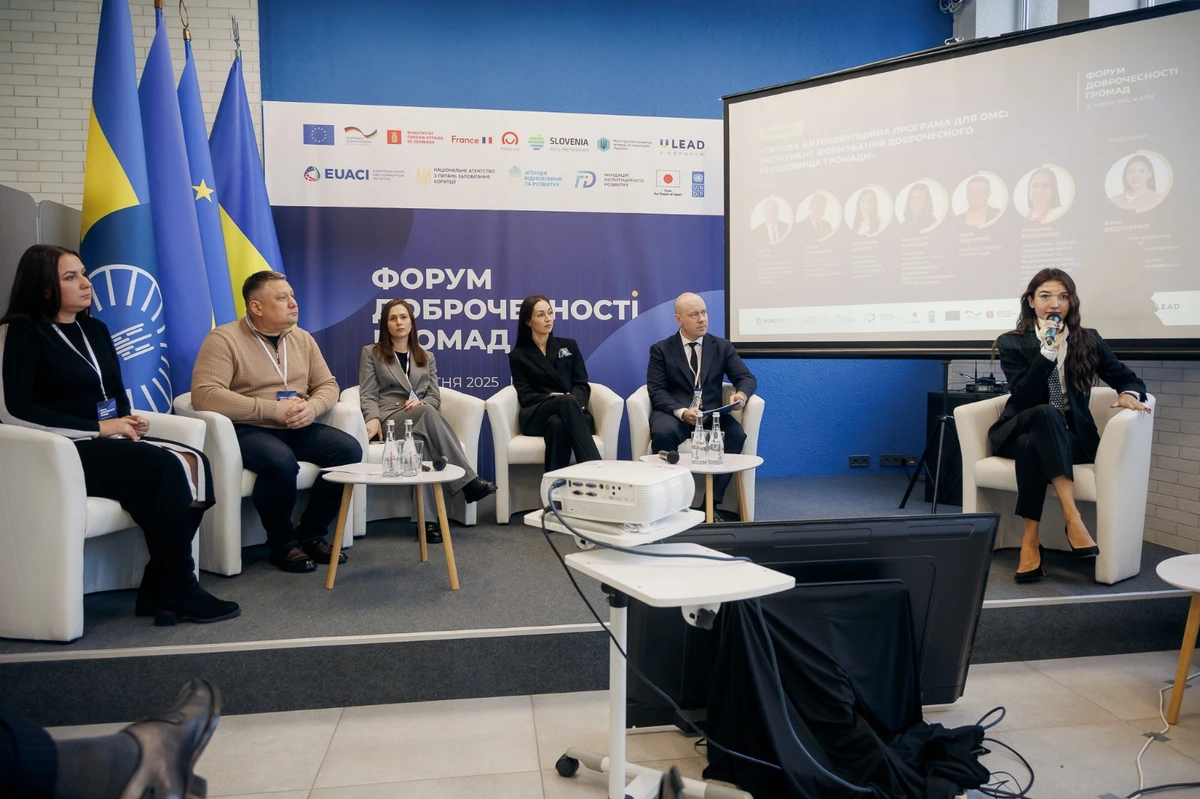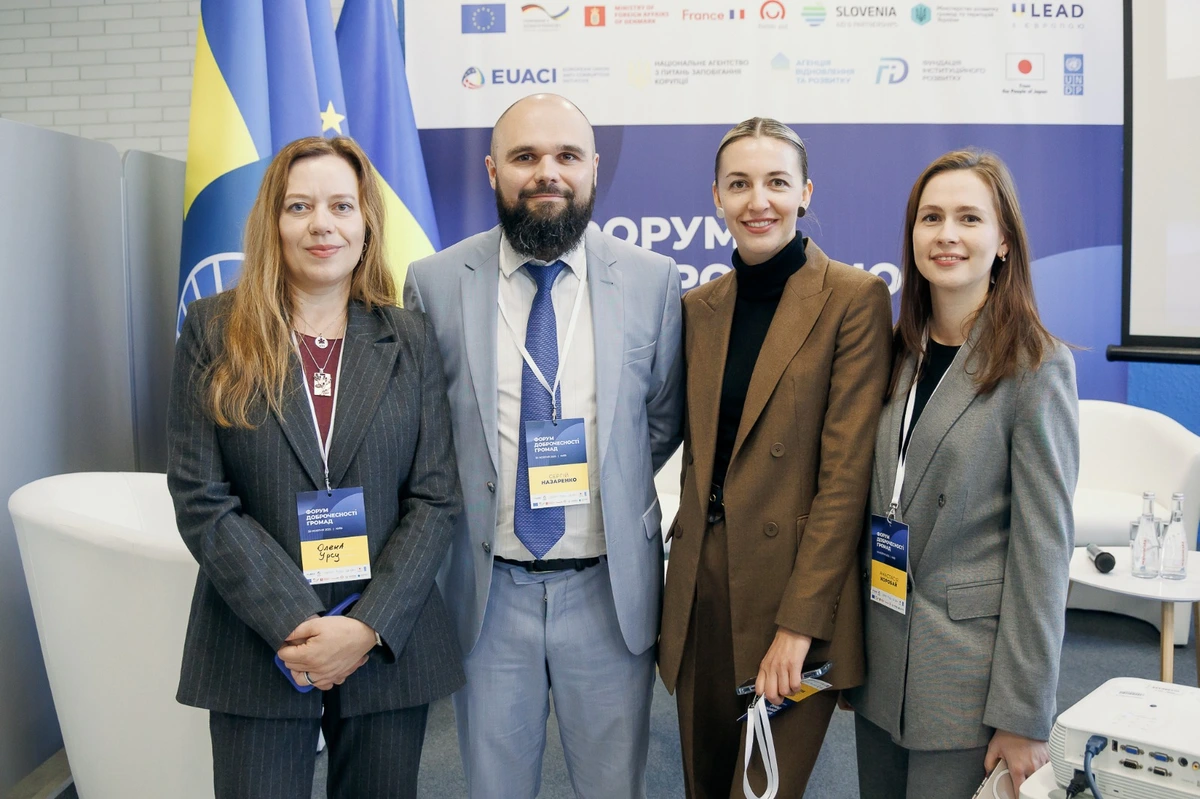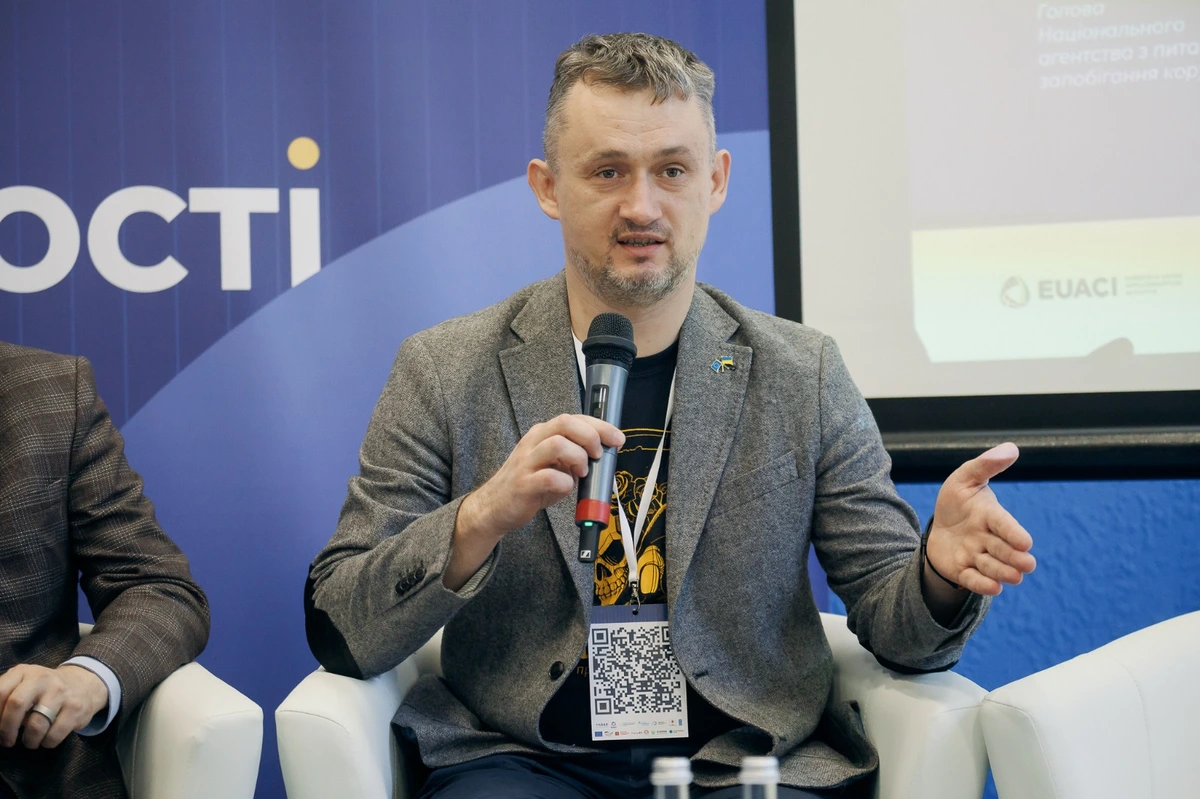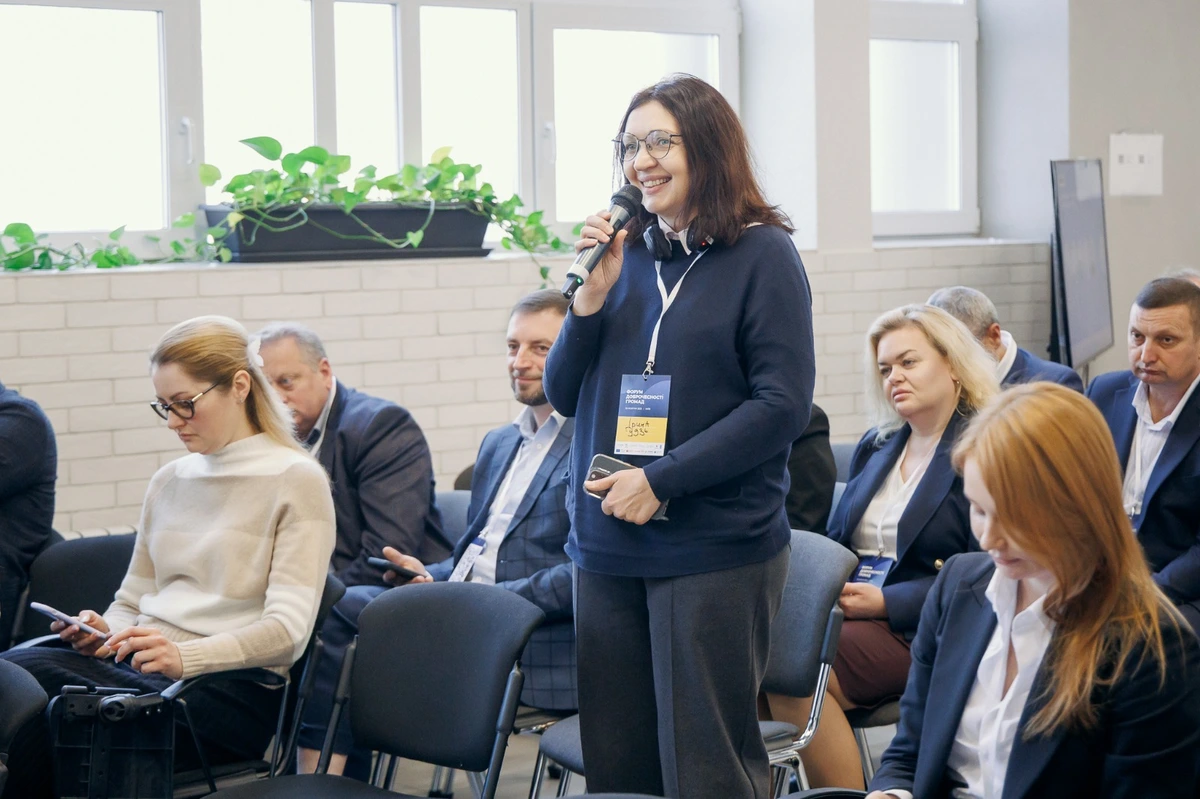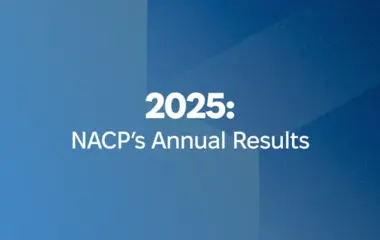Local self-government bodies (LSGBs) are a key element of the state’s anti-corruption infrastructure. Being the closest to citizens and managing significant resources, they must not only comply with anti-corruption standards but also foster a culture of integrity — the foundation of public trust in government. This was emphasized by the Head of the National Agency on Corruption Prevention (NACP), Viktor Pavlushchyk, during the Community Integrity Forum, which took place on October 30 at the NACP.
He noted that one of the most complex yet crucial areas of local government activity is the sphere of recovery and reconstruction.
“Recovery requires unprecedented resources, and where there is big money, there are always high corruption risks. Our duty is to ensure that every hryvnia allocated for reconstruction is used transparently and efficiently. That is why the NACP has identified the recovery sector as one of its priorities and has already conducted a series of studies on corruption risks, which communities use to minimize potential abuses,” said the Head of the NACP.
Among the studies already presented are the Comprehensive Analysis of Corruption Risks in the Field of Construction, Reconstruction, and Major Repairs of Civil Facilities (conducted jointly with the State Audit Service and the Basel Institute on Governance), the study “Corruption Risks in the Reconstruction of Real Estate Objects”, which identified eight complex corruption-prone situations, and the study “Top 10 Corruption Risks in the Implementation of the Experimental Project on the Reconstruction of Settlements.”
“Considering the identified corruption-inducing factors, the NACP models possible corruption abuses related to key processes such as the selection of objects for reconstruction, artificial overpricing of construction works, or setting discriminatory requirements for participants in public procurement. For each modeled situation, specific recommendations are provided on possible ways to eliminate or reduce the impact of corruption-inducing circumstances in reconstruction procedures,” explained Viktor Pavlushchyk, emphasizing that the NACP’s analytical work provides communities with ready-to-use tools for preventing abuses and improving the efficiency of fund utilization.
During the Forum, representatives of the U-LEAD with Europe Programme announced the national initiative “Building a Culture of Integrity,” which is expected to engage over 250 communities. The initiative aims to increase transparency, accountability, and integrity in the activities of local self-government bodies and to foster an overall culture of integrity in Ukraine’s recovery and development processes. It will provide communities with practical tools, training programs, and digital solutions for effectively implementing anti-corruption standards and strengthening public trust. The initiative will be implemented by the “Recovery and Development Agency” NGO and the “The Foundation for Institutional Development” NGO, with financial support from the U-LEAD with Europe Programme.
In addition, the Agency presented a Model Anti-Corruption Programme for LSGBs, developed jointly with the “The Foundation for Institutional Development” NGO, supported by UNDP in Ukraine and funded by the Government of Japan, specifically for small and medium-sized communities that are not legally required to adopt such programs but are committed to acting with integrity.
NACP Deputy Head Serhii Hupiak emphasized that the Model Programme is a cornerstone for building an integrity-based environment at the local level: “The Law of Ukraine ‘On Prevention of Corruption’ obliges only regional councils to have anti-corruption programs. However, thousands of small and medium-sized communities have been left without a clear methodological framework. For them, the NACP has developed the Guide to Developing an Anti-Corruption Programme — a universal and accessible tool that transforms theoretical anti-corruption principles into a practical step-by-step plan for each community.”
The Guide is designed for LSGBs with limited human and financial resources and offers a six-step algorithm for creating an integrity-based environment. Among its tools are a Model Anti-Corruption Programme (a ready-made “skeleton” for communities to adapt into their own programs) and a Model Register of Corruption Risks, which includes typical threats in areas such as land relations, municipal enterprises, and urban planning.
Representatives of Lutsk and Obukhiv communities shared their practical experiences in implementing integrity-based governance.
Participants were also introduced to the Universal Methodology for Assessing the Integrity of Municipal Enterprises (MEs), developed by the NACP in cooperation with the European Union Anti-Corruption Initiative in Ukraine (EUACI).
The Methodology establishes a unified standard for enhancing transparency, accountability, and efficiency in Ukraine’s municipal sector. It allows enterprise managers and communities to independently assess their current level of integrity maturity and identify weaknesses in management, ethics, and anti-corruption mechanisms.
The assessment is carried out through a Maturity Level Matrix, which covers seven universal areas of management (including general and corporate governance, asset management, public procurement, and anti-corruption compliance). A key feature of the tool is its flexibility: in addition to the general matrix, four specialized matrices were developed for more precise self-assessment, taking into account the specifics of sectors such as transport, road management, healthcare, and water management.
“The implementation of these corporate governance standards is key to attracting investment and transforming municipal enterprises into true drivers of development,” emphasized Olena Kryvoshei, Head of the Department for the Implementation of Anti-Corruption Policy in the Recovery and Socio-Humanitarian Sphere at the NACP, during the presentation of the methodology.
The event was organized with the support of the U-LEAD with Europe Programme, the EU Anti-Corruption Initiative (EUACI), and UNDP in Ukraine, with funding from the Government of Japan. It brought together about 100 representatives of national and local authorities, international partners, and the civil society sector.
The event’s speakers also included First Deputy Speaker of the Verkhovna Rada of Ukraine Oleksandr Korniyenko, Deputy Minister for Communities and Territories Development of Ukraine Artem Rybchenko, Head of the Recovery and Development Agency Oleksandr Solontai, Member of the Steering Committee of the Recovery and Development Agency Olena Khmelnyk, Head of the Democratic Governance and Inclusive Society Project Group at UNDP in Ukraine Olena Ursu, Head of the Cities of Integrity and Integrity in Recovery components at EUACI Dmytro Yakymchuk, Head of the Multi-Level Governance Department at U-LEAD with Europe Søren Herbst, Thematic Lead on Effective Multi-Level Governance and UNDP Project Manager in Ukraine Anastasiia Korobai, EUACI expert Borys Malyshev, Secretary of the Lutsk City Council Yurii Bezpiatko, Head of the Anti-Corruption Officer’s Unit of the Obukhiv City Council Executive Committee Kateryna Tytarenko, First Deputy Mayor of Zhytomyr Svitlana Olshanska, and Executive Director of the “Institutional Development Foundation” NGO Kateryna Datsko.
As a reminder, the Community Integrity Forum is NACP’s annual platform for experience exchange and coordination of actions in building integrity at the local level. This year, it was held for the third time.








